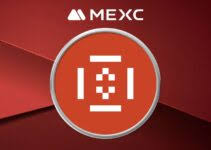The concept of smart contracts did not actually first appear in the blockchain, but was introduced by computer scientist and cryptographer Nick Szabo in 1994:
“A smart contract is a computerized transaction protocol that executes the terms of a contract.”
However, it did not attract enough attention at the time. It was not until the birth of Bitcoin’s peer-to-peer transfer disintermediation system and the rise of programmable, immutable blockchain technology that the concept of smart contracts was no longer a castle in the air.

At the end of 2013, Vitalik Buterin released the Ethereum Whitepaper and led a team in the following years to develop the decentralized smart contract application (Dapp) platform. The Dapp platform acts like an underlying operating system like Apple or Android, providing a rich API interface for developers to easily create smart contracts and blockchain applications.
At this point, the concept of smart contract has also become clearer:
A smart contract is a contractual agreement written into a computer in the form of code, which is executed when specific conditions are met as mutually agreed upon by the participants.

Example of smart contract code on ETH
Features of the smart contract
The main advantage of smart contracts over traditional applications is that they solve the problem of trust. All processes are set and enforced by code, and both parties to the agreement can complete the transaction without third-party intervention and without trusting each other.

Additionally, smart contracts also have the following characteristics:
Consistency: No human involvement is required and the same contract is always executed consistently, even if it is executed by computers in different parts of the world.
Open and transparent: all terms and conditions in the smart contract are fully accessible and viewable to the participating parties.
Immutable: All the contents of the contract cannot be modified once it is deployed, and no party can interfere with the execution of the contract.

Application scenarios of smart contracts
Smart contracts have been widely created and deployed by developers on public blockchains such as ETH and built a trillion-dollar market cap.

Based on the above characteristics, smart contracts can be applied to several business activities and applications that need to be based on “trust”, such as finance, insurance, payments, equity trusts, and online elections.
Problems of smart contracts
The “smart” in smart contracts is similar to the “smart” in a smartphone which means very flexible and does not imply actual intelligence. The smart contract is not omnipotent and has its boundaries.
As smart contracts find greater adoption, it has also become apparent that they are just like real-world contracts. Without careful review, audit, and verification of the underlying code, there is the potential for vulnerabilities and asset security issues to arise.
The most famous incident in the history of ETH was “The DAO”, a decentralized autonomous organization project. It had crowdfunded over $150 million worth of ETH in just one month, but only one month later, a hidden vulnerability in the contract led to a loss of $60 million ETH. The immutable nature of smart contracts meant that this loss would be permanent for The Dao’s investors.

To date, contract vulnerability issues are still a problem. But these hacks have also led more developers to realize that, just like real-world contracts, a professional third party needs to step in to audit the contract.
Moreover, in the future, if the application scenario is further expanded, the conditional triggering of smart contracts may need to rely on oracles to complete off-chain data input. Whether this data can be efficiently and accurately transmitted to the chain remains a challenge at present.
Closing thoughts
Smart contracts have rich application prospects with open, transparent, and non-tamperable protocol codes instead of third-party intermediaries, reducing the cost of trust for contract participants. While there are still challenges in areas such as security auditing, it should also be noted that this area is still less than a decade old and the development of smart contracts is still in its infancy. We believe it is only a matter of time before smart contracts are accepted by the broader market.
Disclaimer: Trading crypto involves significant risk and can result in the loss of your invested capital. The materials are not related to the provision of advice regarding investment, tax, legal, financial, accounting, consulting, or any other related services and are not recommendations to buy, sell, or hold any asset. MEXC Learn solely provides information, but not financial advice. You should ensure that you fully understand the risk involved before investing.
Join MEXC and Get up to $10,000 Bonus!
Sign Up
